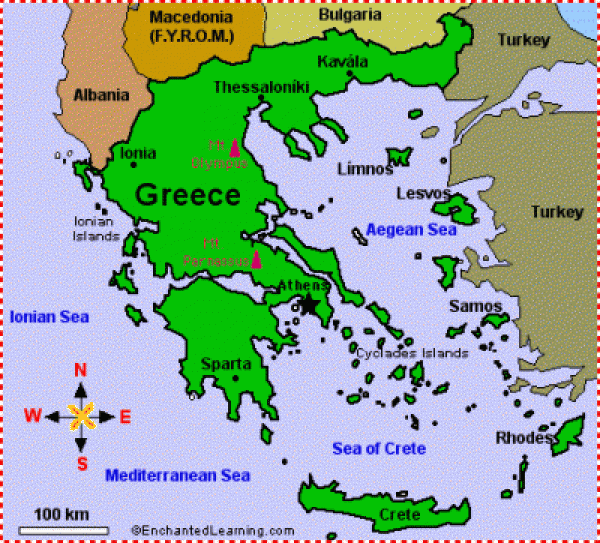Greece to Privatize Prized Gambling Monopoly as Means to Appease Lenders

(Reuters) – Greece outlined a plan to sell one of its most profitable state-controlled companies, gambling monopoly OPAP, reviving a stalled privatisation drive to appease international lenders.
Inspectors from the troika of European Commission, European Central Bank and International Monetary Fund lenders are in Athens on a crucial visit that will determine whether the country gets further aid under its latest bailout programme.
Their talks with the Greek government have already hit bumpy ground since resuming on Sunday, and Athens sought to regain the momentum on Wednesday by announcing it would start the process to sell a 29 percent stake in OPAP next week.
The state has a 34 percent stake in OPAP, one of Europe's biggest listed gambling firms. Prime Minister Antonis Samaras's government in the past has hinted it was eyeing an autumn sale of OPAP as a "quick win" on the privatisation front to show lenders it is serious about its commitment to reform.
Nevertheless, Samaras's govenment remains bogged down in difficult talks on a package of spending cuts worth nearly 12 billion euros for the next two years, juggling conflicting demands from the troika to toughen up the package while coalition allies want it watered down to spare the poor.
A senior Greek government official said the two sides made progress during their latest round of talks on Wednesday, but did not provide any details. EU and IMF officials said the talks with Greece's finance minister were constructive.
"We had a good meeting," the IMF mission chief to Greece, Poul Thomsen, told reporters as HE left talks at the finance ministry.
But Greek officials admit the talks are difficult and the troika is not convinced by the proposed cuts.
So far the inspectors, who are demanding tougher action to cut a bloated public sector workforce, have approved measures worth 7.5 billion euros and have either rejected or demanded additional detail on the rest, another government official said.
"Their main objections have to do with plans to merge organisations - they are wondering how this will yield results if there are no layoffs," the official said.
Earlier this week, a Reuters report on the Greek agency ODDY -- which is beset by red tape and employs dozens despite its abolition on paper -- highlighted Greece's inability to streamline its public sector despite legislating cuts to shut or merge entities.
At the same time, Samaras faces the added challenge of persuading his Socialist and leftist allies to back the package of reviled measures ranging from cutting spending on healthcare to slashing wages and pensions.
The two junior partners in Samaras's coalition - Socialist chief Evangelos Venizelos and Democratic Left chief Fotis Kouvelis - have both made increasingly defiant demands to soften the package to spare low-income earners and civil servants.
The two leaders were holding another round of talks with Samaras on Wednesday in a bid to seal agreement on the cuts.
Greece is struggling through its worst post-war recession that has left one in four jobless, driven up poverty levels and suicides and brought thousands out to the streets to protest.
Elementary school teachers and local government officials marched in Athens on Wednesday after walking off the job, one of a series of work stoppages planned by unions in the coming days to pressure Samaras's government into rowing back on the cuts.









